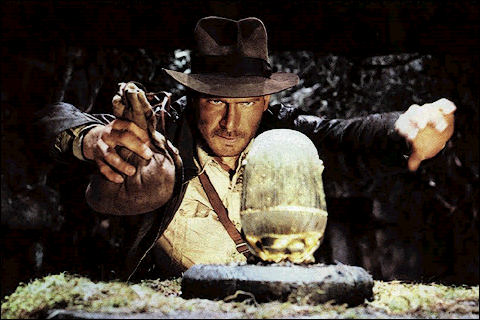By Tim Ciesco
Roland McCook is a member of the Uncompahgre Ute Tribe here in Western Colorado. He says for the Utes and many other tribes across the West, objects like pottery, headdresses, and other traditional art take on special meaning.
"These were hand made specifically for a certain purpose and maybe they were left out there on purpose," said McCook. "Most of them are made so they could survive."
So when he learned that a group of 24 people from Colorado and Utah was stealing artifacts from the Four Corners region and selling them illegally, he says he was deeply offended.
"What do you do after those spirits have been discovered and released back into the atmosphere?" said McCook. "Perhaps they weren't meant to be there."
Blanding's people claim they didn't rob any graves. They just "innocently" picked up artifacts they found lying on the ground. But I think we know what Wazi means too.
It's good to finally get a Native perspective on this issue. McCook makes some points that aren't obvious to non-Natives (including me). One, Indians may have placed artifacts in certain positions for a reason. Two, artifacts may have a spirit or spirits associated with them.
In other words, an object doesn't have to be on an altar or in a museum for Indians to consider it special. Removing such objects may be similar to robbing a church, tomb, or other revered place even if it isn't exactly the same.
And let's not forget the more obvious cultural offense: robbing Indians and the rest of us of America's history. Every artifact is a clue to the past, and every theft helps erase that past. Indians are invisible in our society precisely because Americans have taken away their lands and cultures.
For more on the subject, see:
Stupid graverobber tricks
Indiana Jones, tomb raider
Yale to return stolen artifacts
Below: "I don't see any name tag on this artifact. Therefore, it's mine if I take it."


No comments:
Post a Comment
Note: Only a member of this blog may post a comment.